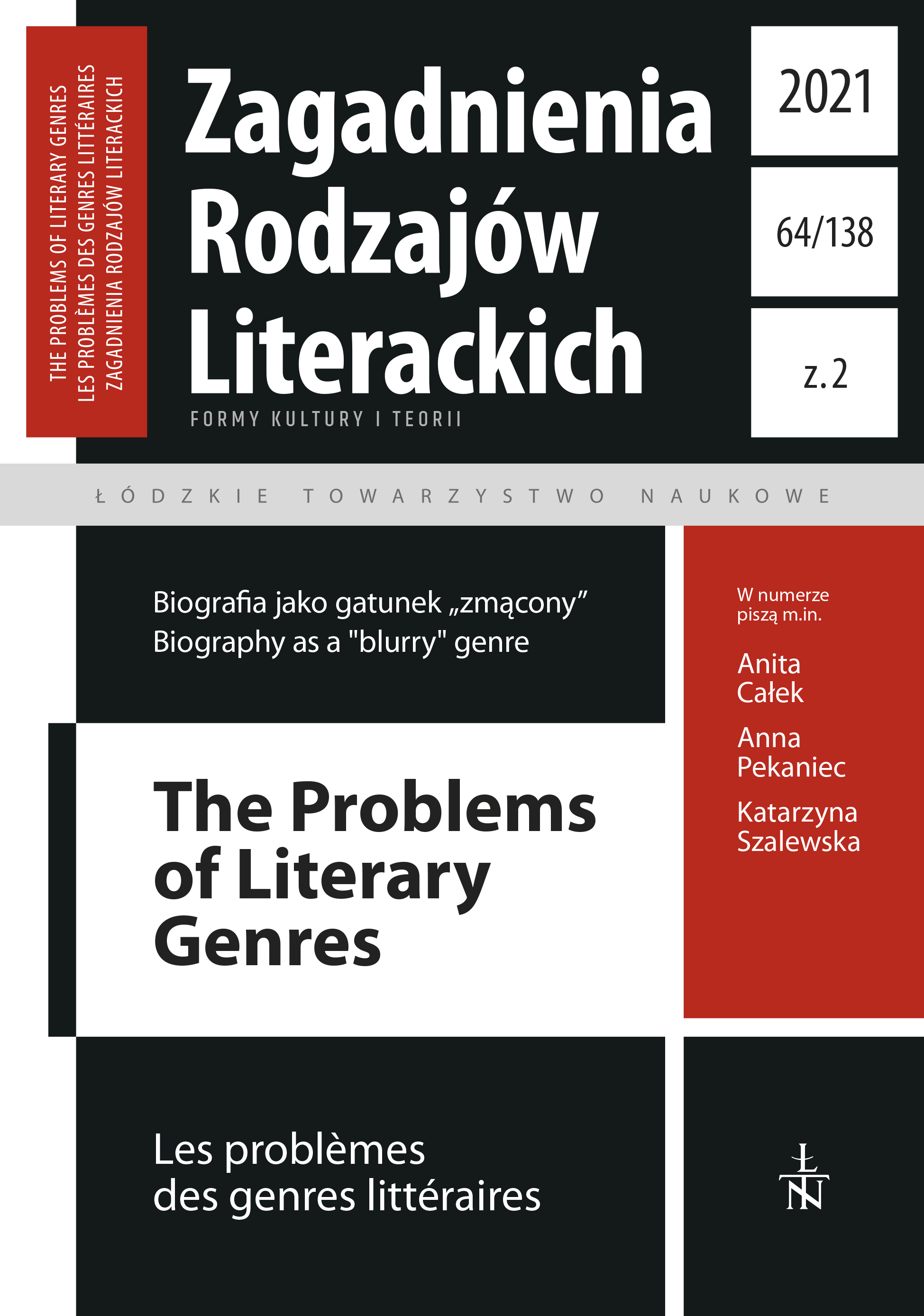Między upamiętnieniem a rewizjonizmem. O dwóch portretach Jana Rodowicza „Anody”
DOI:
https://doi.org/10.26485/ZRL/2021/64.2/6Słowa kluczowe:
archive, anti-system memory community, commemorative biography, critical interpretative biography, transitional justiceAbstrakt
The aim of the article is to compare two ways of introducing the poetics of reportage in biographical writing, using the method of comparative biography, described by Richard Holmes. The author compares two biographies of Jan Rodowicz “Anoda” by Barbara Wachowicz and Piotr Lipiński in aspects like: the use of the poetics of reportage, the selection of archival materials and the approach to it. As a result, she describes two ways a poetics of reportage can be introduced in biographical writing. The first one is described using the example of the book by Barbara Wachowicz, in which a portrait of a national hero is being constructed with archival materials provided by his own family and statements made by the members of the anti- system memory community, that were responsible for keeping the memory of the Warsaw Uprising and the post-war lives of its participants undisturbed by the state’s propaganda. The second one is represented in a book by Piotr Lipiński that uses the biography of “Anoda” to deal with the problem of transitional justice as an unfulfilled dream of Polish society. From this comparison a conclusion can be drawn that there are many ways that biographers can introduce the poetics of reportage in their writing, depending on their aims and the role they want to play in their books.







